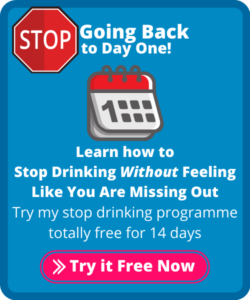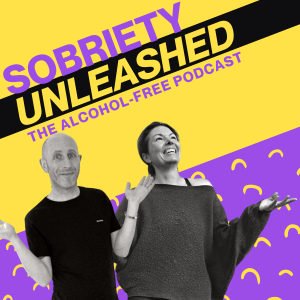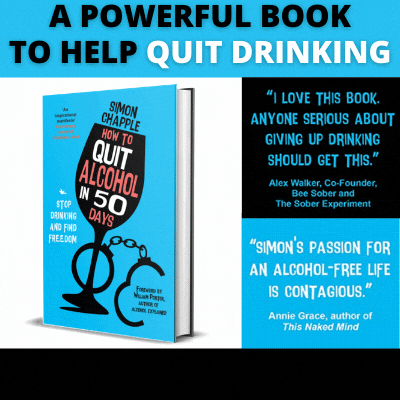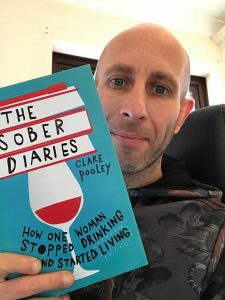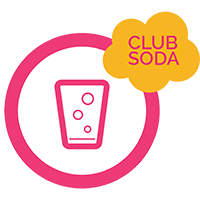Staying Sober Through October – How to keep positive after a relapse
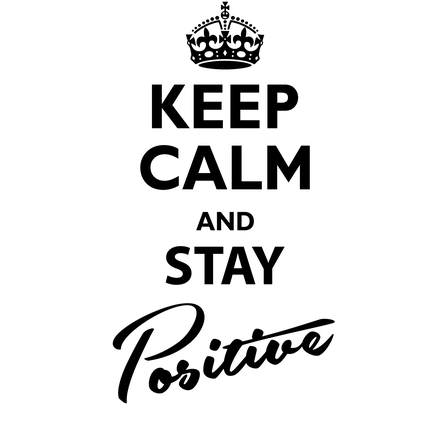
We are absolutely flying through October and if you decided at the start of month that you were going to give ‘Going Sober for October’ a try, then you in the final week of the month. Has it surprised you that you have found abstaining from alcohol to be harder than you thought it would be? Perhaps going sober for the month has highlighted that you previously relied on alcohol more than you realised and you have struggled to keep sober for the month. If this month has been a red flag for you and you actually want to adopt an alcohol-free lifestyle moving forward, then I believe that this post will help you.
I have unfortunately seen so many times people trying to make a dramatic positive change to their lives by stopping drinking, but a slip up causes the addiction to completely take over and a short-term relapse remains as a long term addiction. Having a drinking slip up when you are working toward sobriety can feel extremely demotivating, but the key is to not stop pushing forward with changing your life for the better. I have outlined below some of my top tips on how to keep positive after a relapse to keep your sobriety in-check.
#1 Don’t let the negative thoughts win
Having a relapse when you have been on track with your sobriety can been extremely disheartening, overwhelming and also a feeling of grief for your new life. You need to challenge these negative thoughts and not allow them to take over. Understand that blips will happen throughout your journey but this doesn’t mean you have failed. Being too hard on yourself can have the negative impact of you giving up being alcohol-free altogether and a slight relapse turns back into an out of control addiction. Replace those negative thoughts with positive and challenge yourself to get back on track and learn what caused you to relapse this time around.
#2 A journal is your friend
Having a journal to document your progress along with your honest thoughts and feelings on how you are feeling and how you are coping is great for these very moments. Becoming free of alcohol is a process and not something that just happens overnight. Being able to look back when you relapse at the progress you have made along with understanding how you were feeling when you were not drinking will help to get you back on track.
#3 Keep the bigger picture in mind
What caused you to want to go alcohol-free in the first place? Did you no longer like the feeling of not being in control? Could you feel your physical and mental health diminishing? Could you see the strain that alcohol was having on your relationships with your partner, friends and/or employer? Do you no longer want to experience hangovers? Whatever the reason why you decided to remove alcohol from your life, it doesn’t mean that it won’t sometimes creep back in. However, not focusing on a short term relapse and instead, concentrating on the bigger picture with what sobriety will bring to your life will help to curtail any relapse and get you back to alcohol-free living where you are in control.
#4 Get support
Rome wasn’t built in a day or by one person alone! If you are finding it hard to stay positive after a relapse then there is no shame or harm in getting support. Whether you have people close to you that you can confide in, or you are looking for support online, having people to speak openly and honestly with and who can help provide a listening ear and support can really help to give you the positive boost you need. If you are not already, then I also have a fantastic free Facebook Support Community available with thousands of members who you can talk to and will want to help.
#5 Learn and adapt
A relapse may not seem it at the time but it is actually a learning experience for you. What caused you to turn back to alcohol? Understanding what caused the relapse to happen can help you to avoid the same thing occurring again the future. Having the mindset shift from viewing a relapse as a failure, to understanding that it’s a chance to learn and adapt will help you to move forward in a positive manner and get your sobriety back on the right road.
I hope this post goes someway to helping you understand that set backs can and will happen, but the important thing is to not let it derail all of the positive progress you have made to-date. The fact you are working on you and trying to change your life for the better is such a positive step in itself. We are all learning all of the time and becoming alcohol-free is a big learning curve and slip ups will happen throughout, but hang in there and keep positive about the progress you are making. I would also love to hear from you in the comments section below. How are you feeling about your alcohol-free lifestyle change? What tactics do you employ to keep yourself moving forward? Or, are you struggling right now with a relapse? Please do get in touch as I would love to hear from you and provide assistance or just a listening ear.
View this post on Instagram

